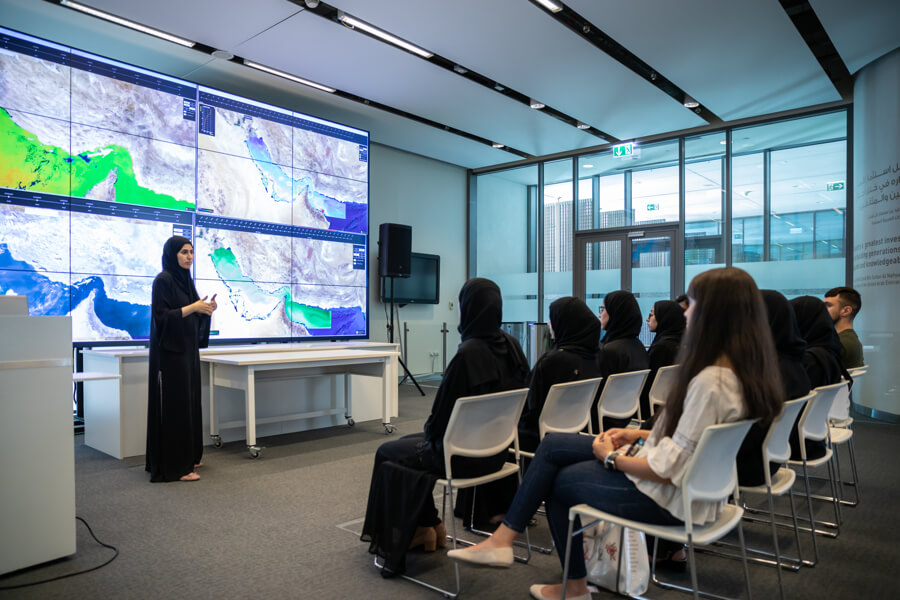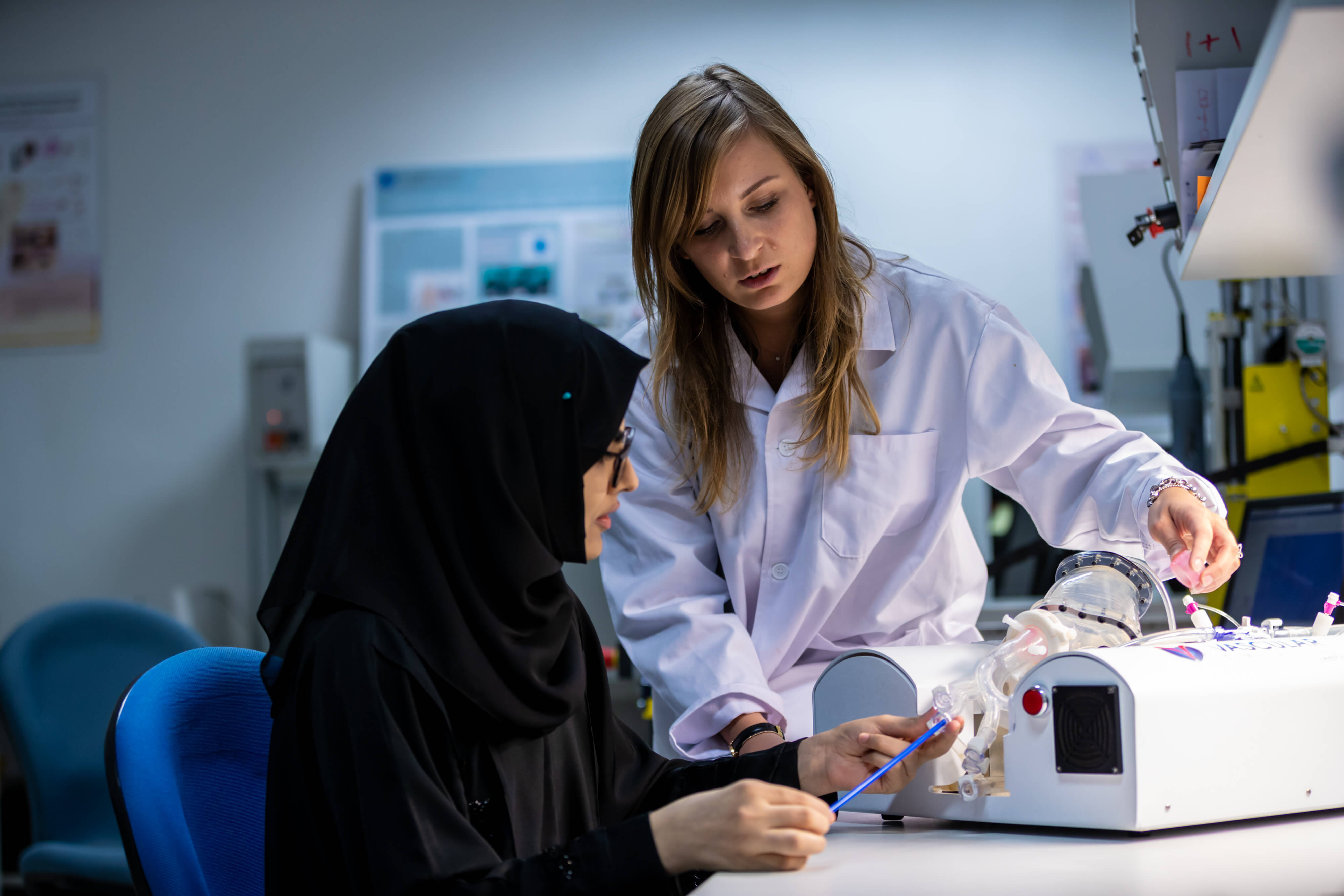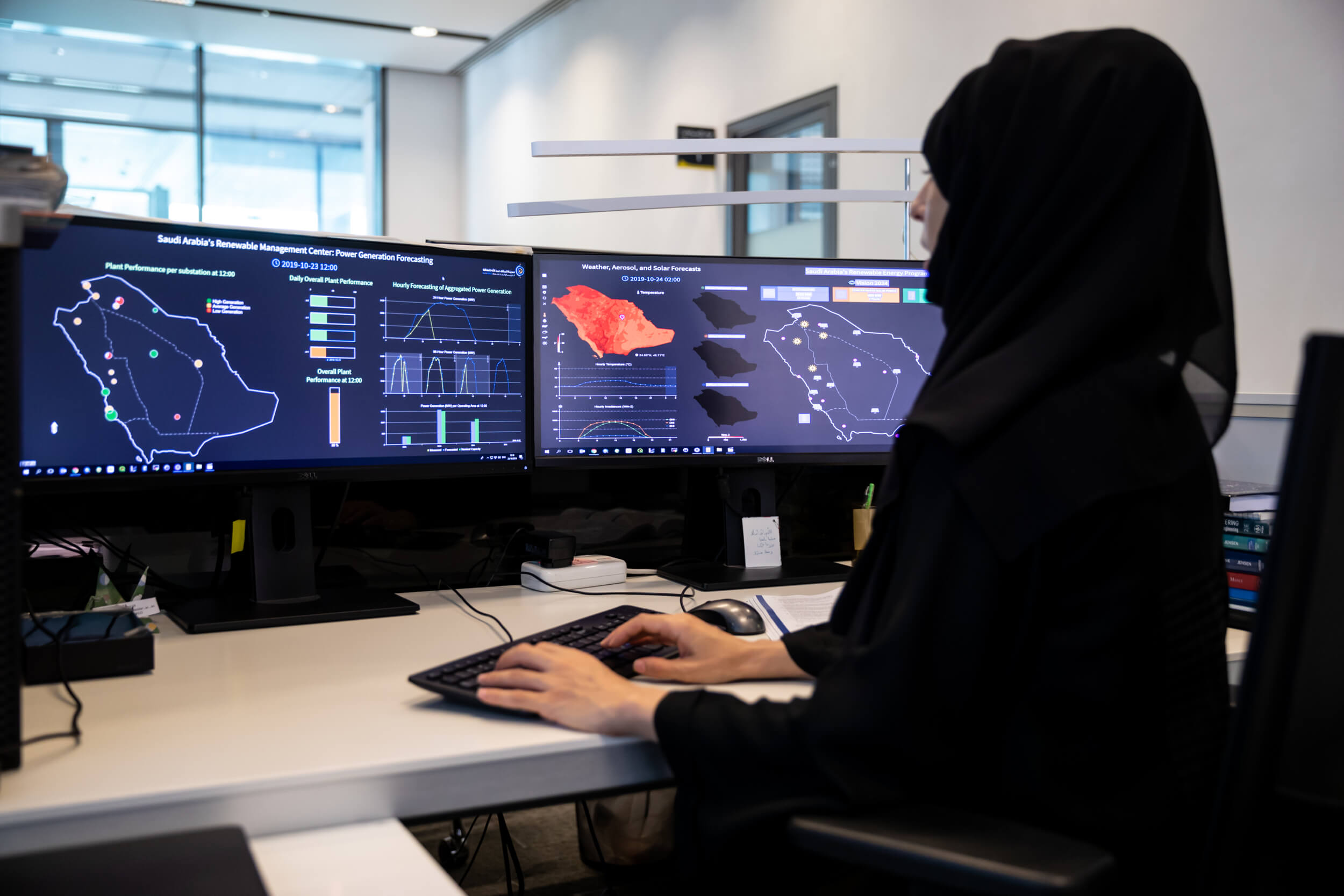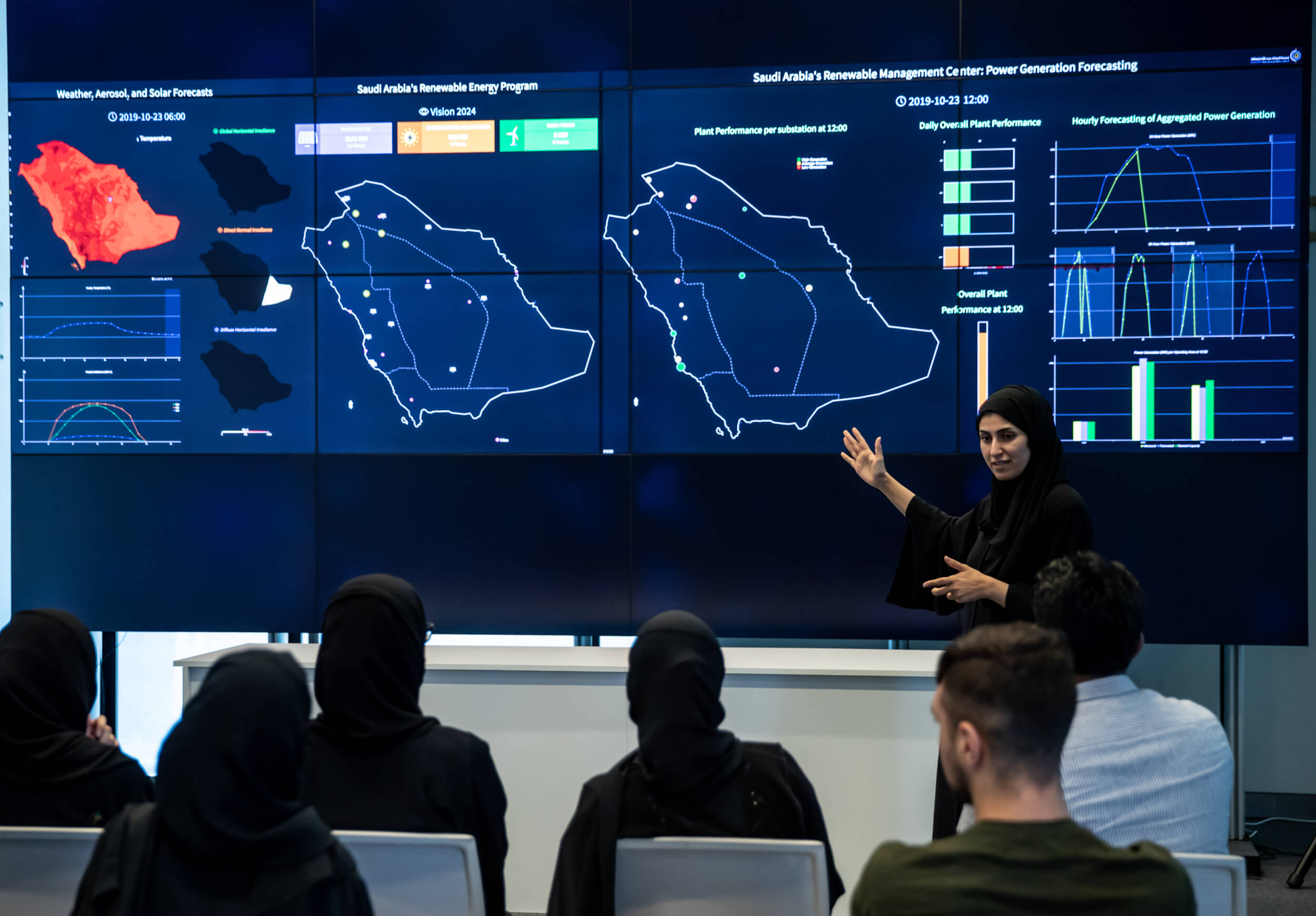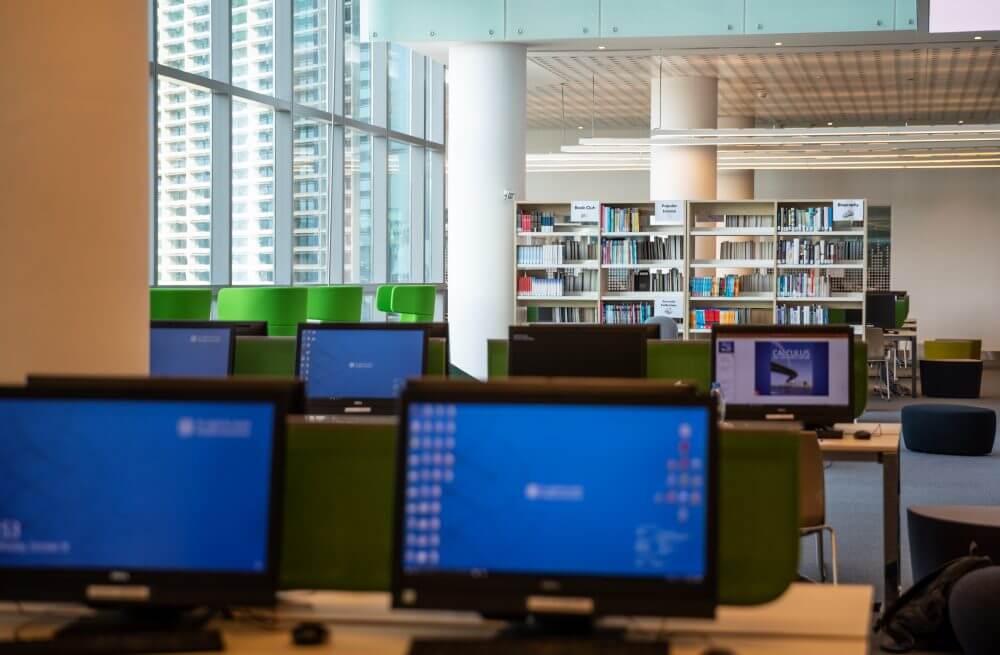
Masdar Institute students and faculty have been producing a stream of innovations in key strategic areas since the university first opened its doors, six years ago. By continually strengthening, broadening and accelerating its research activities and academic offerings in response to the UAE’s national goals and strategic interests, Masdar Institute has demonstrated its steadfast commitment to the UAE’s knowledge-economy transformation.
“Recognizing the central role that innovation in three key areas – energy, water, and advanced materials – plays in a number of the UAE’s strategic goals and targeted industries, Masdar Institute has been working with an increased focus and devotion to achieving meaningful innovations,” revealed Dr. Behjat Al Yousuf, Masdar Institute Interim Provost.
“You can now clearly see how our commitment to these critical areas has been powering an innovation pipeline, with a chain of advancements revealing our growing expertise, relevance and value to not only the UAE, but the wider scientific and industrial community,” she added.
This year in particular Masdar Institute has worked to accelerate the pace of development of valuable intellectual capital most relevant to the UAE’s National Innovation Strategy (NIS) priority sectors of renewable energy, transport, education, health, technology, water and space.
A brief snapshot of the diverse and varied research projects taking place at Masdar Institute in the UAE’s key interest areas follows.
ENERGY
Masdar Institute has been focusing on research to help the UAE expand its energy mix since its launch, with an overarching goal of supporting diversification of the country’s hydrocarbon economy, contributing to renewable energy production and and supporting carbon emissions reduction through renewable energy, energy efficiency and carbon capture.
One major contribution to these goals came in 2012, when Masdar Institute’s Research Center for Renewable Energy Mapping Assessment (ReCREMA) developed the region’s first solar atlas. The atlas, which provides accurate information on the solar radiation at all locations in the UAE, showed that the country receives less direct sunlight than was previously estimated by satellite solar resource maps due to high levels of atmospheric dust and humidity, posing challenges to solar energy harvesting. ReCREMA’s solar resource maps now properly account for the presence of dust and humidity so that accurate solar resource assessments can be conducted in the UAE.
Responding to this regional solar energy harvesting challenge, Masdar Institute has since been pursuing a range of research activities through its Institute Center for Energy (iEnergy), including efficient solar panels with anti-soiling coatings and UAE-tailored solar and thermal energy storage systems, to increase the UAE’s solar energy harvesting for power generation.
Photovoltaic (PV) technology to harness solar energy is a critical Masdar Institute research area that has seen progress over the past six years. The institute is involved in many research projects that seek to develop the country’s indigenous ability to produce efficient PV systems that are better suited for the country.
In 2013 Emirati Masdar Institute Master’s student Mejd Al Sari fabricated the first polymer-based Organic Photovoltaic solar cell (OPV) in the UAE as part of her thesis research focused on the development of emerging thin-film PV using nanoscale investigation. This year Masdar Institute PV innovations went even further, receiving international accolades when PhD Student Sabina Abdul Hadi won the Best Poster Award for her paper on a more efficient type of dual-junction solar cell at the 42nd IEEE Photovoltaic Specialists Conference held in the US.
Another example of how Masdar Institute responds to the UAE’s energy needs is by helping its industries become more energy efficient, which in turn reduces their operating costs.
Masdar Institute Assistant Professor of Mechanical and Materials Engineering Dr. Mohamed Ibrahim Ali worked with Abu Dhabi aluminum giant the Emirates Aluminum Company (Emal) to solve an energy performance issue with Emal’s gas fired furnaces. His research found room for improvement, resulting in the opportunity for 22% savings in gas consumption, depending on furnace design and operation. The research also suggested an efficient cooling technique to save about 36% of cooling time for reduction pots used in aluminum production. The results of the project can be applied to fine-tuning of existing Emal plants and in the design of new plants. This kind of collaboration benefits Abu Dhabi by helping to improve the competitiveness of its industries while preserving precious energy resources.
WATER
Another precious resource that Masdar Institute looks to preserve is water. The UAE exists in one of the world’s most water-scarce regions, which is why research that monitors, preserves, produces and treats water has been a core research area at Masdar Institute since it began academic operations six years ago.
The UAE relies on energy-intensive desalination plants for more than 90% of its potable water. These natural gas-fired desalination plants contribute almost a third of the UAE’s greenhouse gas emissions. Thus, innovative research to produce freshwater more sustainably is critical to the country’s prosperity.
Responding to this need, Masdar Institute’s Center for Water and Environment (iWater) has been delivering results in the enhancement of existing desalination and wastewater technologies while also introducing novel approaches for more sustainable and affordable new technologies.
High economic and environmental costs of desalination have necessitated the pursuit of advanced desalination technologies as well as alternative freshwater production methods, including wastewater recovery. Masdar Institute has been involved in a range of wastewater treatment research projects, all aimed at supporting the UAE’s freshwater needs and achieving Abu Dhabi’s goal of recycling 100% of its wastewater.
Current wastewater treatment technologies are unable to remove a large number of contaminants that are classified by environmental regulatory agencies around the world as “emerging contaminants” or “micropollutants,” including common pharmaceuticals, preservatives, and nanomaterials that can have harmful effects, such as antibiotic resistance in residual bacteria and endocrine hormone disruption in animals.
In response to this, Dr. Farrukh Ahmad, Associate Professor of Chemical and Environmental
Engineering has designed a sustainable water treatment “polishing” technology that can remove pharmaceutical micropollutants from treated wastewater. The membrane has now been successfully tested on four common pharmaceuticals and a patent has been filed on this promising technology. Research will continue on improving the promising technology’s efficiency at removing pollutants.
Another research project that responds to Abu Dhabi’s water goals is taking place in collaboration with the Abu Dhabi Sewerage Company (ADSC), and seeks to help the emirate achieve its goal of 100% water recycling in the coming years.
This project, led by Dr. Shadi W. Hasan, Assistant Professor of Water and Environmental Engineering, is focused on the development of a UAE-specific all-in-one wastewater treatment system called a “submerged membrane bio-electro-reactor” (SMBER) to treat wastewater at high quality. Research so far has shown that the new system developed through this project can efficiently and effectively remove many types of waste, producing treated wastewater aimed at meeting the recycled water quality standards in Abu Dhabi.
Through water research projects like these Masdar Institute works to contribute to the UAE’s resilient water infrastructure, helping the country meet its growing freshwater demands sustainably.
ADVANCED MATERIALS
“Innovating across all seven of the NIS priority sectors can be achieved with innovations in advanced materials,” said Dr. Steve Griffiths, Vice President of Research at Masdar Institute.
“That is why advanced materials has become the Institute’s third major research thrust. In addition to being at the core of innovations in renewable energy and water, advanced materials will contribute to novel innovations in health, technology, education, space and transportation,” he added.
Masdar Institute has been rooted in advanced materials research since its launch, capitalizing on their potential to improve a material’s performance. Building on this growing research stream, the Institute is now further evolving and expanding its materials science research capabilities to accelerate the development of commercially-viable, materials-based innovations in the UAE’s strategic industries.
Among the Institute’s dynamic advanced materials-focused research projects are a number of projects that look to capitalize on carbon nanotubes and the graphene it is formed from, to achieve outcomes relating to desalination, smart sensors, photovoltaics and wastewater treatment. Graphene, which is made of a layer of carbon just one atom thick, is considered a ‘wonder material’ due to its excellent combined properties of very high strength, transparency, high electrical and thermal conductivity, extreme light weight, flexibility and hardness.
Dr. Irfan Saadat, Professor of Electrical Engineering and Dr. Amal Al Ghaferi, Assistant Professor of Materials Science and Engineering and Acting Dean of Students, are using graphene and carbon nanotubes to develop smart sensors for deployment in oil and gas pipelines. The research is part of a collaboration with ADNOC and the Petroleum Institute and aims to detect and monitor the build-up of scaling or impurities inside gas and oil pipelines.
Graphene and carbon nanotubes are being used to make the scale sensors that can help oil and gas plants operate at optimized levels and thus recover more oil from their pipelines. This will improve the operational efficiency of the UAE’s oil and gas industry, which is a vital pillar of the economy.
Dr. Sadaat has also brought his graphene and carbon nanotubes expertise to another project that responds to the UAE’s unique needs. He worked with Dr. Faisal Al Marzooqi, Masdar Institute’s first doctoral graduate and current assistant professor, to integrate carbon nanotubes with membrane synthesis in an innovative desalination technology. The resulting technology pairs membrane distillation (MD) desalination systems with capacitive deionization (CDI) for a less energy-intensive way to remove salt from saltwater than the standard reverse osmosis and distillation systems.
In further recognition of the potential of the advanced material of graphene to generate commercially-viable innovations in the UAE’s priority sectors, Masdar Institute has collaborated with the University of Manchester to facilitate research in graphene and other 2-dimensional materials that, like graphene, are just one atom thick and possess a range of novel properties.. This collaboration, in addition to a materials characterization laboratory due to come online at Masdar Institute this winter, will enable the Institute to hone and accelerate its advanced materials research, to generate relevant, valuable innovations for the UAE’s nascent high-tech industries.
Continuing Momentum
These projects and their achievements are just a sample of Masdar Institute’s varied portfolio of research. Capitalizing on this growing momentum in the UAE’s innovation pipeline, the Institute is working to drive and enhance its robust and dynamic research infrastructure to facilitate the development of relevant and valuable technology-based innovations for the UAE’s strategic industries.
In the coming year Masdar Institute will further advance these core competencies, accelerating the pursuit of strategic research opportunities that generate novel technologies with the greatest impact in NIS priority sectors, while continuing to attract the highest-caliber of faculty and producing a pool of highly-skilled human capital.
Erica Solomon, News and Features Writer and Zarina Khan, Senior Editor
22 November 2015


